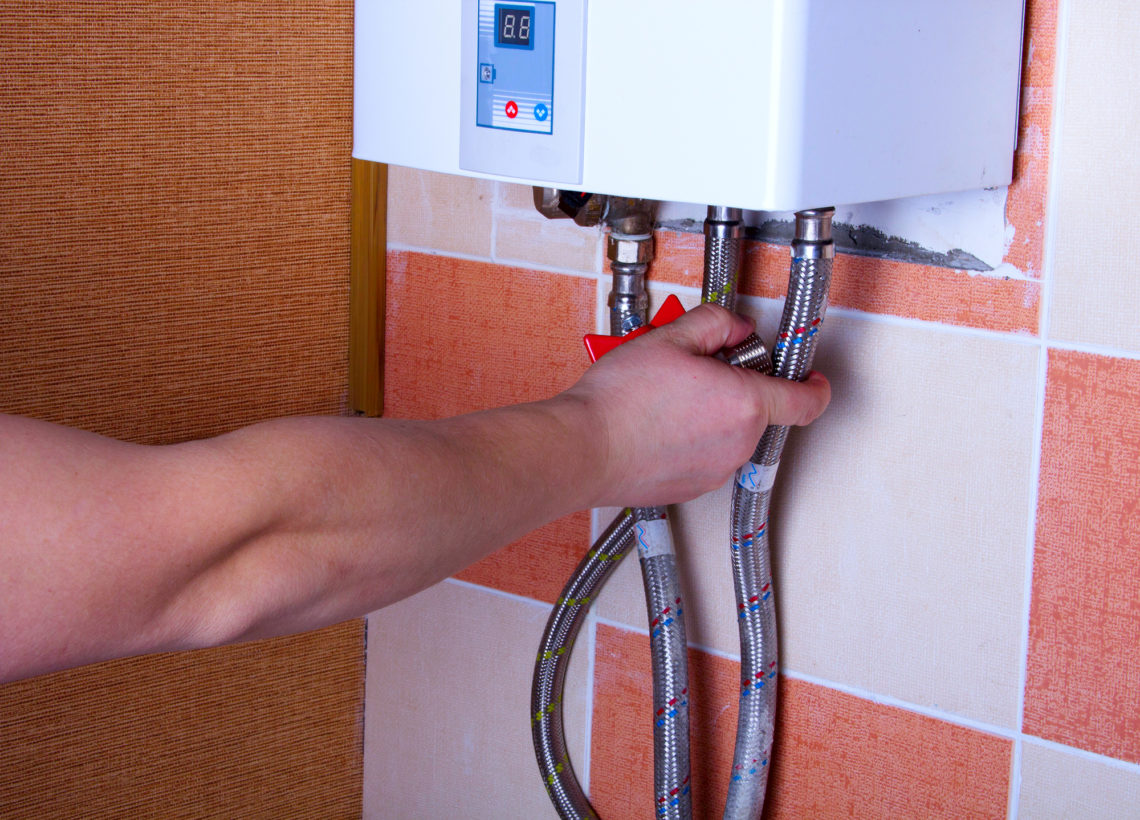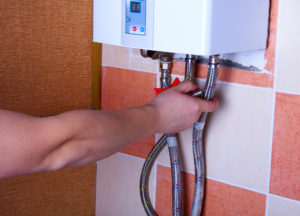
 A tankless water heater, also known as on-demand or instantaneous water heaters, is a big trend right now. Heating water accounts for up to 30 percent of the average household’s energy bill, and many people believe that tankless heaters are significantly more energy-efficient than traditional tank water heaters. They don’t produce the standby energy loss that tank heaters do, which can save money.
A tankless water heater, also known as on-demand or instantaneous water heaters, is a big trend right now. Heating water accounts for up to 30 percent of the average household’s energy bill, and many people believe that tankless heaters are significantly more energy-efficient than traditional tank water heaters. They don’t produce the standby energy loss that tank heaters do, which can save money.
What is a tankless water heater?
A tankless water heater warms water on demand instead of storing hot water like a traditional water heater. Tankless heaters can provide two to five gallons of hot water per minute on demand, using either electric or gas energy. They are compact, much smaller than a traditional tank heater, and they can be installed in more places, even outside on the side of a building.
How does a tankless water heater work?
Tankless water heaters use high-powered gas burners or electric heat elements to heat water quickly as it runs through a heat exchanger. When a hot water tap is turned on, cold water runs through the pipe into the water heater, where it is warmed by the heating element or burner. As a result, tankless heaters deliver a constant supply of hot water, limited only by the unit’s flow rate. Gas-powered tankless water heaters produce higher flow rates than electric water heaters. However, tankless water heaters may not be able to produce enough hot water for multiple simultaneous uses in larger households, such as someone taking a shower while the dishwasher is running. For this reason, some homes install two or more tankless water heaters, connected in parallel, to increase the available supply rate of hot water. These tankless water heaters don’t use the standby energy associated with traditional tank water heaters, which warm and store an entire tank’s worth of water.
Does a tankless water heater save money?
Tankless water heaters have a higher initial cost than conventional tank heaters, with tankless water heaters costing anywhere from $2,800 to $4,500. Tankless water heaters can also have a higher installation cost, since replacing a traditional water heater with a tankless model is more complicated and requires retrofitting. However, according to Energy.gov, tankless water heaters can be 24%-34% more energy efficient than traditional tank water heaters. Tankless water heaters also have a lifespan almost double that of traditional tank heaters, with tankless water heaters lasting 20 or more years. And tankless water heaters with an Energy Star rating can save you about $100 per year on energy costs, according to Energy.gov.
Where can I get one installed?
Before purchasing a tankless water heater, consider the size needed, fuel type, energy efficiency, and cost. Proper installation and maintenance can optimize the tankless heater’s energy efficiency and extend its lifespan. It’s recommended to have a qualified heating and plumbing professional install your tankless water heater.
If you don’t mind the initial higher investment, endless hot water, more storage space, and lower energy bills could all be yours. Learn more about tankless water heaters here.
1 Comment
hack4mobileges.com
May 22, 2017
This means there’s more turnover and therefore you have to buy them twice as often as a tankless water heater.
Write a comment: